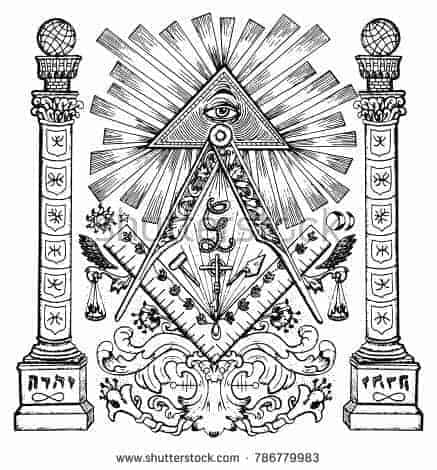The World Wars evoke imagery of brave and world-weary soldiers. True patriots, ready for battle at a moment’s notice, all for the sake of life, of liberty, and the pursuit of happiness. More than any other war, the World Wars are glorified despite the sheer violence and the depravity experienced by so much of humankind. These wars personify the fight for good and evil; there was a clear and distinguished line between the “good” guys and the “bad” guys.
Guns, machinery, and master strategists all contributed to our visions of these wars, but what of less mechanical and physical means were both allied and axis forces operating with? It is easy to assume the tragedies were all man-made, but is it possible higher, more menacing, powers were at work to orchestrate some of the greatest losses of human life the world has ever seen? Many major political and military contributors found themselves dabbling less in tried and true military strategy and instead of reaching for less corporeal means of victory. Under these dire and dangerous times, secret societies and the occult flourished.

World War I began with the assassination of Archduke Franz Ferdinand on June 14th, 1914. Ferdinand was heir to the Austro-Hungarian Empire. While he and his wife Archduchess Sofia were on an official visit, their car pulled through crowds of jubilant people. Suddenly, a group of young extremists threw a car bomb, narrowly missing the Archduke and his wife, and instead of injuring twenty bystanders. While this specific incident left the royal family unscathed, a wrong turn from the driver of the car found the family face to face with the remaining assassins, ultimately leading to one of the most world-changing assassinations to have ever taken place.
This particular group of extremists belonged to a secret society, a group of Serbian nationalists who formed The Order of the Black Hand. When the case was brought to court, the argument on behalf of the young nationalist assassins was that they had not acted in a solitary act of defiance against their government, but was acting on behalf of a larger network of conspirators determined to destroy the social and financial structure of the country.

It was commonly known that the Austrian Emperor Franz Josef I was exceptionally paranoid about secret societies and the occult; his paranoia stemmed from both the tragic death of his wife who had been stabbed to death by a member of a secret society in 1898. Franz Josef himself was the target of an assassination effort by The Order of the Black Hand. It was his belief that the French Freemasons were devising ways to begin a war between Austria-Hungary and Russia.
Franz Josef’s sentiments were shared by French occultist Dr. Gerard Encausse, who had deep ties to the Russian Royal family. Encausse believed that a financial syndicate with Freemason and Carbonari ties, both secret societies, were responsible for the majority of political upheavals Europe and Russia had recently been experiencing. He believed this syndicate was attempting to gain control of the world’s gold reserves and cause war for the largest European powers in order to disrupt political factions.

